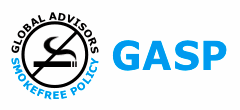New England Journal of Medicine on statewide tobacco 21 laws (Dr. Winickoff, et. al)
Posted on
On March 23, 2016, the New England Journal of Medicine published on article entitled “Have Tobacco 21 Laws Come of Age?” authored by Drs. Jonathan Winickoff, Stephanie Morain and Michelle Mello. The article discusses how NJ Governor Christie’s veto of a state tobacco 21 bill was a setback in an otherwise accelerating movement for tobacco 21 laws as a tool to reduce young people’s access to tobacco and electronic smoking devices. In 2013, only 8 municipalities in the USA had a tobacco 21 law. As of March 2016, more than 125 localities in the USA have done so along with the State of Hawaii. These Local and state efforts that succeeded in raising the age of sale to 21 are protecting more than 16 million Americans. In addition, California is awaiting the Governor’s signature, and in 2015 the first federal bill to require tobacco age 21 was introduced.
A study published last year showed that a tobacco 21 law in Needham, Massachusetts resulted in a 47% reduction in smoking rates among high school students, along with a reported decline in retail tobacco purchases. These decreases were significantly greater than those in 16 comparison communities without tobacco 21 laws. Last year’s Institute of Medicine (IOM) study used modeling to show that a national tobacco 21 law would lead to a 12% reduction in smoking rates, with IOM concluding that it would result in 249,000 fewer premature deaths and 45,000 fewer deaths from lung cancer.
New survey evidence show strong public support for tobacco 21: two 2015 national public opinion surveys found that 70 t0 75% of Americans, including current smokers, support tobacco 21. 1125 U.S. adults were surveyed online. 68/3% of young adults ages 18-24 support tobacco 21. A survey based on political party affiliation showed that 76% of Republicans and 80% of Democrats support tobacco 21, which is similar to support by party affiliate for smoking bans in restaurants and bars.
The major political barrier to tobacco 21 in interest-group opposition based on expected lost sales revenue, which the media suggests had influenced NJ Governor Christie to veto the statewide tobacco 21 bill. But, the authors believe that near-term economic harms are overstated. It is estimated that the revenue loss would be 2-3% at the beginning. Health and medical organizations can counter tobacco industry opposition.
Legal barriers to scaling up tobacco 21 to the federal level are not unsurmountable: An act of Congress is required to amend the 2009 Family Smoking Prevention and Tobacco Control Act, since it currently bans the FDA from raising the minimum age via administrative regulations. Local activity is hampered in 19 States because of their state’s preemption laws that ban local or county laws that are more stringent than the state laws.
Read the full March 23, 2016 article from the New England Journal of Medicine.
